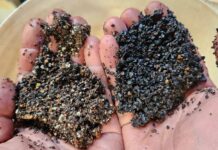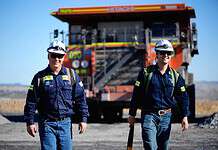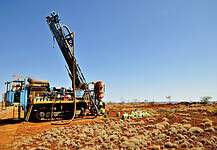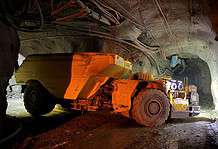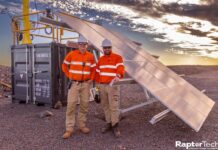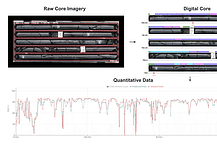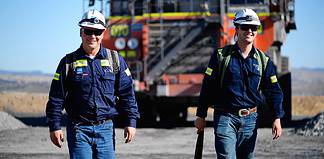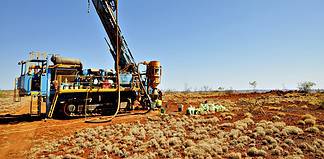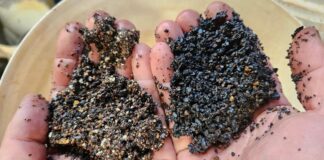BHP is focussed on transitioning its Nickel West operations to become a global supplier for the battery market and with its newly approved Venus and Yakabindie deposits, the company looks ready to make the move. Image: BHP
BHP Nickel West received the green light from the WA Government in late 2018 to develop the Venus ore deposit in the northern goldfields.The Venus deposit, which forms part of its Nickel West operations, is one of the most significant opportunities for the business with more than 200,000 tonnes of contained nickel.
A BHP spokesperson said first stoping production from the site was expected in March 2019, with production expected to be in full swing by the end of the year.
“This is an underground mining operation which leverages the substantial surface and underground infrastructure already in place at Leinster nickel operation,” the spokesperson said.
“The high-grade material from Venus is expected to feed the Leinster nickel operation mill and concentrator over the next eight years.”
Venus, was expected to provide feed for the company’s Leinster nickel operations mill and concentrator, as well as create between 150 and 200 jobs once operational.
Nickel West had also received the final major government approval it needed from the Western Australian Department of Mines (DMIRS) to develop the Mt Keith satellite project; a low cost development which was expected to provide up to a decade of ore for the Nickel West business.
The project (also known as Yakabindie) represented two open-cut satellite mines, Six Mile Well and Goliath, about 20km south of Mt Keith in the northern Goldfields.
There were no maintenance facilities, processing plants or tailings dams to build as Nickel West coulduse the existing facilities at Mt Keith.
Road trains would haul the ore to the Mt Keith concentrator and waste would be stockpiled locally.
“Dozers have immediately started preparing an initial access road from Mt Keith to Six Mile Well, which will allow operations to start work at Six Mile Well,” BHP Nickel West asset president Eddy Haegel said.
“The most important milestones have now been met. This is a great achievement for Nickel West and a real validation of the terrific opportunities we have in Western Australia for supplying nickel to the battery materials industry.”
Leonora shire president councilor Peter Craig lives in Leinster and said the recent approvals were great news for the region.
“Leinster has been supplying Nickle to world markets for more than 35 years and with the current development of new resources, Leinster has the potential of been here for another 25 years plus,” Mr Craig said.
“Currently there are job requirements for all levels in open cut and underground mining but Nickel West has a positive effect in generating jobs for the whole goldfields region – not just Leinster.”
BHP also anticipated first production from the nickel sulphate plant at the Kwinana Nickel Refinery by the end of FY19 of about 100,000tpa.
The company was exploring options for a Stage 2, 200,000t nickel sulphate facility and had constructed a mini-plant at CSIRO facilities in Perth, to replicate the final nickel sulphate plant.
Capable of producing 100kg of dry nickel sulphate per day, the mini-plant would test and produce quality, on-spec product for customers in the battery market for use in the lithium-ion batteries that power electric vehicles.
“Nickle West has been one of the major producers of Nickle in WA and with their current recourses both at Leinster and Mt Keith mines, along with other deposits in the area, the future looks good while Lithium Battery market stays positive,” Mr Craig said.
Meeting Demand
The interest in the use of nickel concentrate in battery metals had also been reflected in nickel prices which rose in FY18 from below $US10,000 per tonne to current levels at about $US12,400 per tonne.
BHP’s operational review for 2018 stated that, while exchange stocks of refined nickel metal remain high relative to historical levels, it had been declining across FY18.
“In the near term, supply of nickel from Indonesia (in multiple forms) is expected to grow, which should prevent an acceleration in the drawdown of stocks,” the report stated.
“In the long term, the battery sector is expected to provide strong growth in demand for high-purity nickel supply.”
BHP will also be able to take advantage of the recent announcement of WA Governments Future Battery Industry Strategy, which aimed to facilitate the establishment of new future battery projects in WA – assisting and supporting projects through the approvals process.
Nickel West was already in an advantaged position to produce nickel sulphate product with benefits including; access to sulphuric acid from the Kalgoorlie Nickel Smelter; being geographically close to the Asian market; being able to take strategic advantage of Australia’s Free Trade Agreements with China, Japan and South Korea, as well as the capacity for further expansions at relatively low cost.
BHP’s half yearly results, released on 19 February were also positive and suggested that the company expected a strong performance in the second half of 2019 to offset any negative productivity the previous year.
2019 production would be boosted by the Venus and Yakabindie developments, even depsite a fire at the Kalgoorlie smelter in September 2018, which led to a decrease in production for the final quarter.
Luckily planned maintenance the Kwinana refinery was moved forward to align with the smelter outage – resulting in unchanged production guidance for the 2019 financial year which is expected to be in line with FY18.



